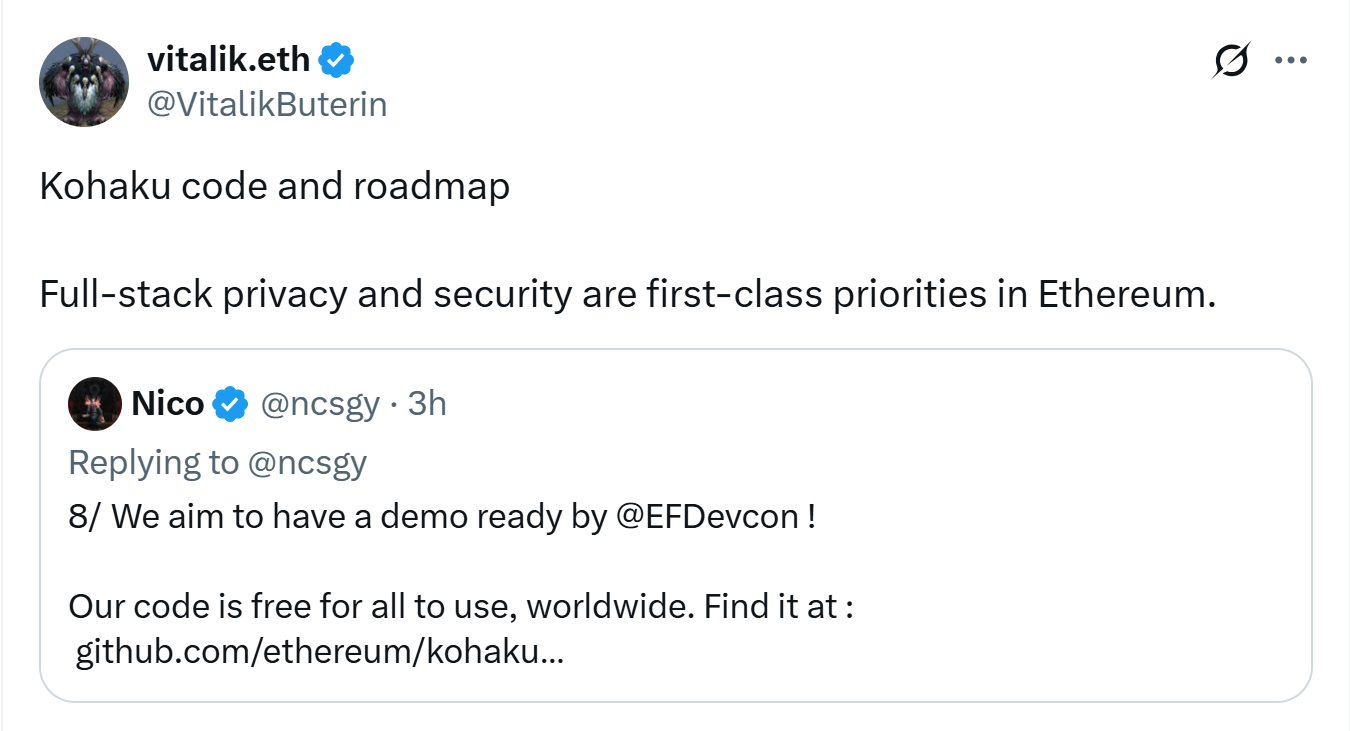
Ethereum Developers Unveil Kohaku Roadmap to Enhance Wallet Privacy and Security
The Kohaku roadmap introduced by Ethereum developers aims to improve wallet security and privacy with modular tools and decentralized transactions.
Ethereum developers have rolled out Kohaku, a strategic roadmap aimed at enhancing wallet privacy and security through a modular framework for developers and advanced users.
The initiative was shared in a blog post by Nicolas Consigny, who coordinates efforts at the Ethereum Foundation, outlining the aim to cultivate privacy and security essentials within the Ethereum ecosystem.
Kohaku is designed to offer a software development kit (SDK) facilitating the creation of secure wallet functionalities, alongside a reference wallet showcasing these innovative tools. The first iteration will be available as a browser extension linked to the Ambire wallet, oriented towards proficient users seeking enhanced control and privacy.
This project is a collaborative effort with esteemed entities within the Ethereum community, including Ambire, Railgun, DeFi Wonderland, Helios, and Oblivious Labs. The undertaking is open source and invites developers to participate via its GitHub repositories.
 Vitalik Buterin emphasizes the significance of privacy during the Kohaku launch.
Vitalik Buterin emphasizes the significance of privacy during the Kohaku launch.
Source: Vitalik Buterin
Kohaku intends to diminish the dependence of wallets on centralized services capable of tracking transactions. The project encompasses features for private sending and receiving, obscured IP addresses, dedicated accounts for each DApp and P2P transaction broadcasting to circumvent conventional remote procedure call (RPC) servers.
Additionally, plans are in place for incorporating social recovery tools like ZK Email or Anon Aadhaar, simplifying the restoration of access while maintaining user privacy. ZK Email leverages zero-knowledge proofs for anonymous email verification, while Anon Aadhaar allows privacy-preserving identity validation.
Over time, the team aims to elevate wallet security to be as close to the device’s hardware as feasible, envisioning a native Ethereum browser facilitating secure interactions with DApps, IPFS content, and decentralized networks without data leaks.
On a related note, the Ethereum Foundation recently launched a Privacy Cluster, uniting 47 top researchers, engineers, and cryptographers to develop privacy-centric features directly at the protocol level of the Ethereum network. This group collaborates with the Privacy and Scaling Explorations (PSE) team to introduce measures such as private payments and confidential identity systems, which are fundamental for safeguarding user data on Ethereum’s layer-1 blockchain.


